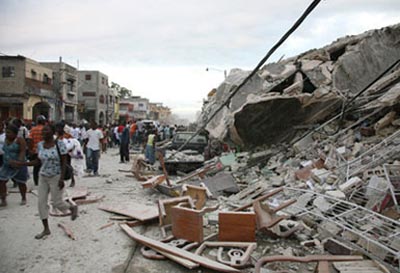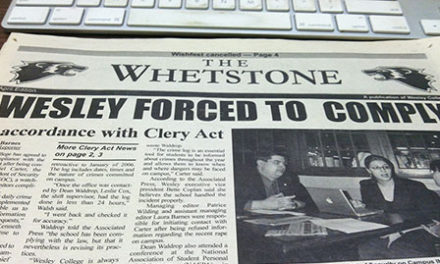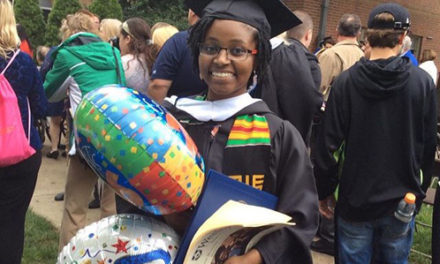 By Ashley Peard Tory McClay & Brian Orthman (Whetstone staff writers)
By Ashley Peard Tory McClay & Brian Orthman (Whetstone staff writers)
About a month ago, a 7.0 magnitude earthquake hit the city of Port au Prince in Haiti.
In the city of Leogane, 17 kilometers west of Port au Prince, 90 percent of the buildings were destroyed.
Shortly after, a 6.1 earthquake hit Haiti 37 miles northwest of Port au Prince.
Following the disaster, an estimated three million people were in need of immediate shelter and assistance.
The earthquake claimed over 230,000 lives, the BBC news reported. More than a million were left homeless, and only about 200,000 received emergency shelters.
According to CNN, 300,000 were injured, and 5,000 schools were destroyed or damaged.
Efforts to help Haiti began immediately. Aid and donations began to be sent to the country, and, according to the United Nation Humanitarian Affairs, 2.3 million people have received food aid, 10,300 mosquito nets, 23,000 family tents, 26,500 kitchen sets and 79,500 blankets.
The World Health Organization has estimated only five percent of the need for latrines has been met.
Progress is being made with drinking water. Almost a million people now have access to safe drinking water, but that is still short of their goal by almost fifty percent.
Wesley began to help Haiti as soon as it heard about the disaster.
From Jan. 25-27, students and faculty were given the chance to give up one or more of their meals in Dulaney Hall. The $1,000 saved from the sacrificed meals went to the United Methodist Committee on Relief (UMCOR) in Haiti.
“Administrative costs are covered by the United Methodist Church, so all of the money raised goes to help the people of Haiti,†said Dr. Mark Pruett-Barnett, Wesley College’s Chaplin.
Another way students helped was through Hearts for Haiti, in which the Residence Hall Association sold paper hearts for a dollar each.
All proceeds went to benefit the Haiti Plunge Project’s Relief Fund.
The Student Government Association is joining Pruitt-Barnett to make Haiti Health Kits and shipped through the American Red Cross.
The health kits consist of a 2-gallon zip lock bag filled with a towel, fingernail clippers, a washcloth, toothpaste and a toothbrush.
The executive members of SGA, Amberlyn Oldham, Tanner Polce, Ann Wright, Beth Angelucci, and Josh Spivey donated $100 to fund the health kits.
“Everyone is donating money for this great cause,†said SGA vice president Tanner Polce. “Everybody wants to help out as much as we can.â€
Amy Maguire, a senior, has been helping a Haitian child before the disaster hit.
“I support a child through Compassion International that lives in Haiti,†Maguire said. “In January, I increased my donation for not only the child I support, but for the people affected by the earthquake.†Students can continue to support Haiti by sending cash or checks to the business office, where the money will go to UMCOR.



